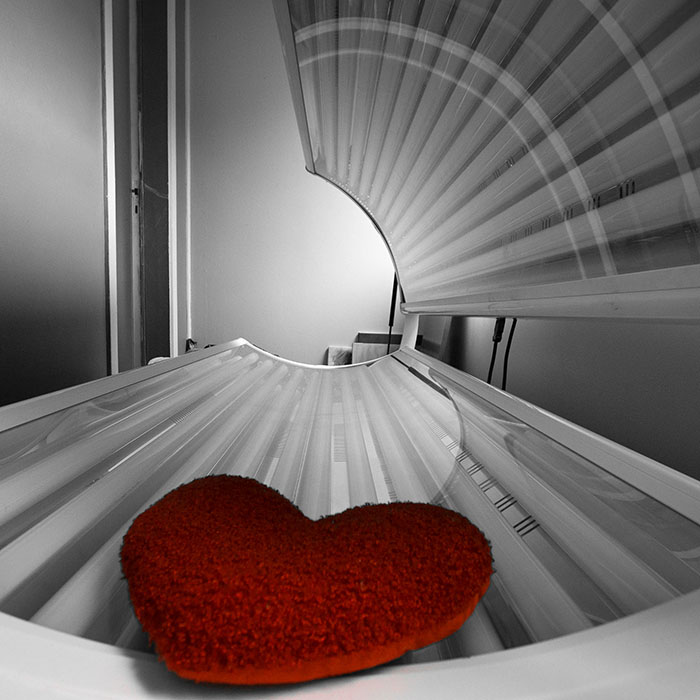Tanning Beds: Not Optometrist Approved

Optometrists warn that anyone who enjoys a nice tan should be aware of the risks of tanning booths.
Those risks include ones to eye health. A group of physicians, dermatologists, surgeons, and even eye doctors went before Congress to describe the negative health effects of tanning beds, and the World Health Organization has warned for years that they come with a high risk of skin cancer. Why are optometrists concerned about tanning beds? What are their effects on eye health?
UV Exposure Is Always Bad for the Eyes
Just like we get sunburned when we’re outside without sunscreen, our eyes are damaged any time they are exposed to UV radiation. The effects are cumulative over the course of a lifetime, which means that even if there doesn’t seem to be any damage in the moment, it can build over time with more exposure.
What makes a tanning bed so dangerous, as far as your Irvine optometrist is concerned, is that the levels of UV radiation are 100 times what we can get by being outside on a sunny day. It can do serious damage to our skin, including the thin skin of our eyelids, and it can also damage our eyes.
Keeping Your Eyes Closed Isn’t Enough
Even shutting your eyes tightly in a tanning bed isn’t enough protection against UV rays of that strength. In the short term, being in a tanning bed could lead to eye problems like blurry vision, dry eye, and sunburn — because, yes, eyes can sunburn too. We call it photokeratitis when the cornea (the clear layer that covers the surface of the eye) becomes sunburned. Symptoms include a gritty feeling under the eyelids, runniness, burning, and redness. Dry eye can also leave the eyes irritated and red, and insufficient tear production increases the chance of developing eye infections.
Long-Term Impact of Tanning Beds
Repeated visits to tanning beds can lead to more serious eye problems, even sight-threatening ones like macular degeneration and cataracts. These conditions are typically associated with old age, but that’s because cumulative damage from UV exposure normally takes decades to reach that level. Indoor tanning can shorten that timeframe considerably.
Macular degeneration involves the deterioration of the detailed central vision, while cataracts form when the transparent proteins in the lens of the eye clump together until they become opaque, dulling colors and eventually completely obscuring vision.
Eye Health Matters More Than Skin Tone
Achieving a skin tone a few shades darker isn’t worth the UV damage it can do to your skin and your eyes. We can’t stop you if you really want to visit a tanning salon (or if you want to go out and sunbathe), but we strongly urge our patients to prioritize eye and skin health over beauty standards that are constantly changing. It would be much safer to use bronzer.
As your Irvine optometrist, our tip to our patients is to make sure to wear UV-blocking sunglasses whenever you’re outside during the day, and if you do go tanning, never leave off the protective goggles. Make sure you check the map for directions before you head to our Irvine office!










